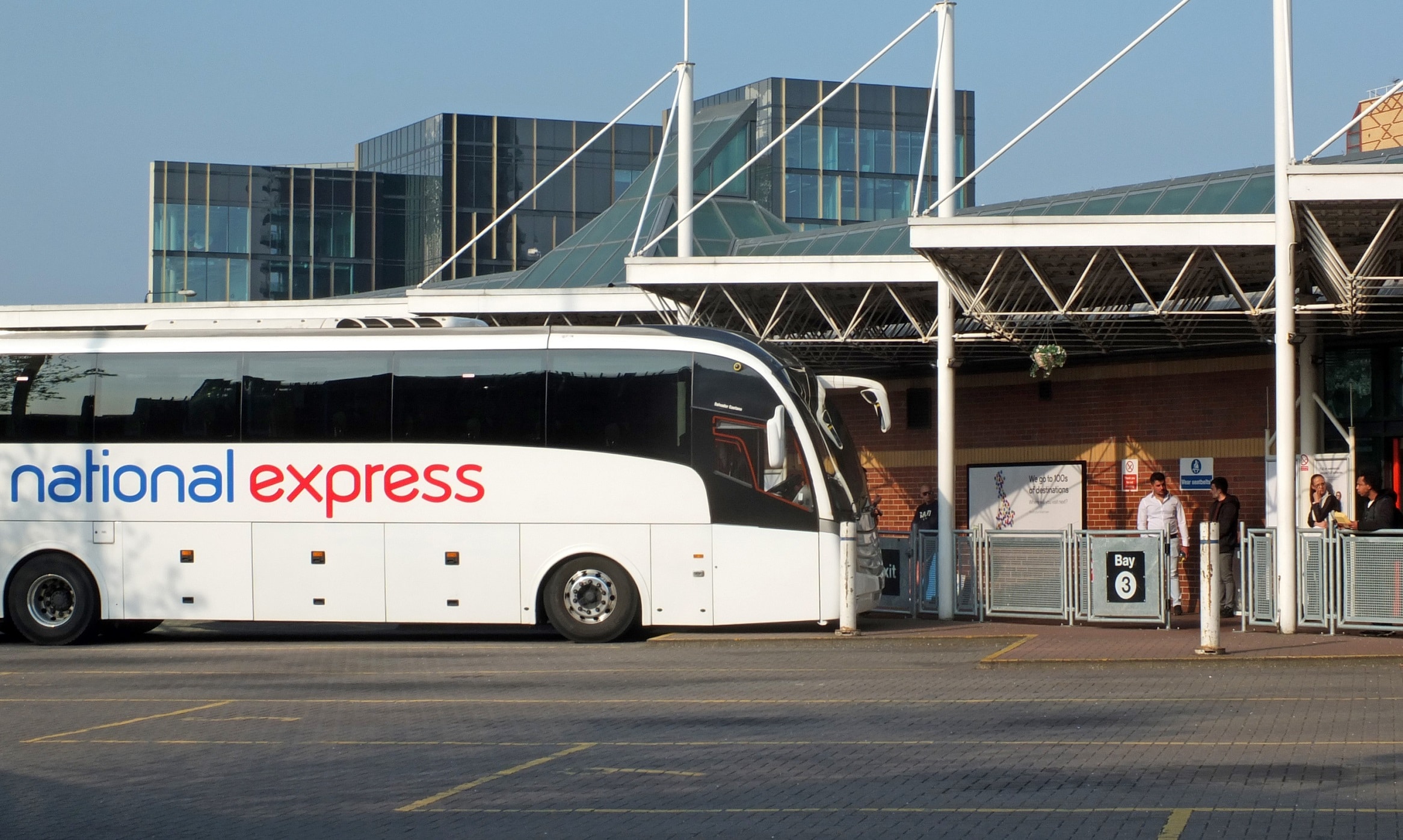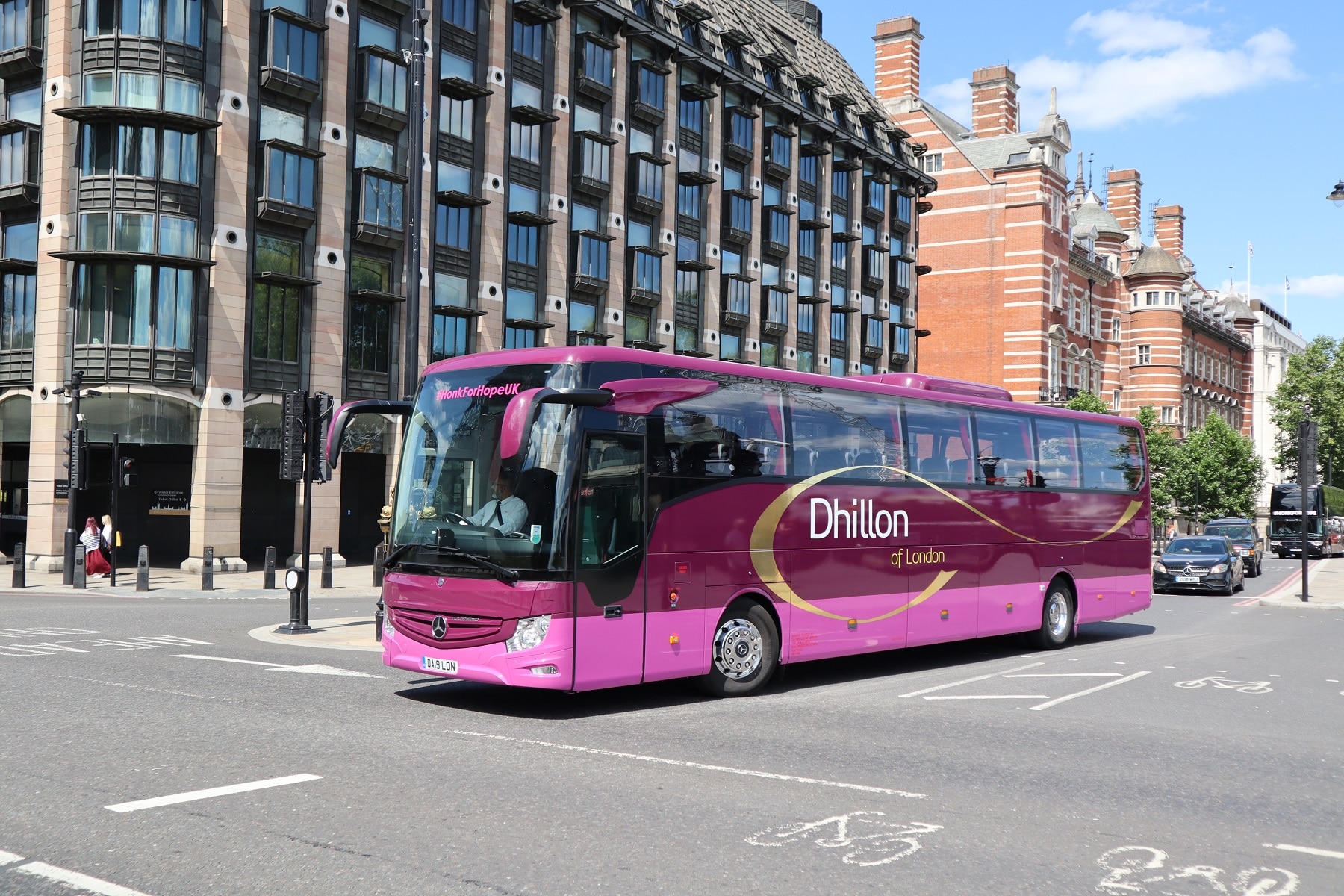A rare source of positivity for the coach sector is the resumption of scheduled services as the country recovers from the coronavirus COVID-19 pandemic. National Express started to reintroduce journeys on 1 July. How quickly demand rebounded came as a surprise. The network is still far off bouncing back fully, but early signs are highly promising, says Service Delivery Director Ed Rickard.
National Express suspended scheduled coach operations after service on 5 April as the full effects of the pandemic became stark. The intervening three months were not idled away; the opposite is true. Management teams at both National Express and its partner operators have been working hard to deliver a smooth and, above all, safe return when appropriate.
The decision to suspend the network was “an incredibly difficult one,” Ed explains. For staff in service delivery roles, it was an unprecedented and even slightly eerie position to be in. National Express usually runs 24/7/365. To pause that was “a big thing for us,” he adds.
Deciding upon a date to suspend operations was considered carefully. National Express is a key player in transport to and from airports. By 5 April, almost all repatriation flights had arrived. After that, the situation had reached a point where it was no longer sustainable to continue.
Keeping National Express partners updated ahead of a resumption
Ever since the wind-down of services commenced, National Express has maintained regular dialogue with partner operators.

Email and video conferences have each been used to communicate, along with an anonymised method for partners to ask questions. Answers are shared with all members of that group.
Work towards a restart began immediately. A ‘welcome back’ pack for partner operators and their drivers formed a major part of that.
It contains details of what National Express’ new standards are and links to all relevant documentation. The driver handbook was also updated.
£7m from discretionary fund paid to NatEx’s partner operators
Those steps and more would only be of use if partner operators were able to return to the road when they were needed to, however.
To that end, National Express quickly agreed a programme of support payments. That fund has delivered around £7m to its partner operator base. None of the money is contractual; it is all at the group’s discretion.
“We wanted to make sure that they come out of this as well we do. We work in partnership and that goes both ways,” says Ed.
“In some cases, it will be harder for partner operators to weather the storm than us as a PLC. A lot have seen their other income sources dry up. Ours did too; every penny we have paid to operators from our discretionary fund has come off our bottom line.
“But we took the strategic decision at the start that we would support our partners.” Obtaining the approval for that spend came from the very top of National Express. At the time that routeone spoke to Ed, only a handful of partner operators were still to restart. In none of those cases were the reasons financial. They related to network resource requirements.
While services were suspended, partners were able to use National Express-liveried coaches on some other work with the group’s blessing. That largely centred on rail replacement duties, where their PSVAR compliance was useful.
Other work to prepare for the restart of scheduled services
National Express also spent time focusing on its own business when preparing for the restart. Strict procedures have been put in place in its offices. As many people as possible are working at home. Since the resumption of services, that group has included service supervisory staff.

Great effort has also gone into ensuring that coach stations are safe.
Alternate loading bays are used where possible and other steps have been taken to reduce the possibility of virus transmission. They include the removal of leaflets, introduction of social distancing markers for queuing, the issue of PPE to staff and frequent cleaning.
On coaches, screens for drivers have been introduced and, like coach stations, face coverings are mandatory for passengers. Drivers have also been issued with a comprehensive package of PPE.
In addition, customers are subject to temperature checks before they may board. Seatback safety cards and magazine nets have been removed to reduce touch points; safety information is now provided at the front of the coach. Changes have been made to air-conditioning units to reduce the possibility of virus transmission.
Reduced capacities onboard have already led to duplication
The most noticeable change on board coaches – and the one that has had the greatest impact on the overall dynamic – has been to reduce capacities. National Express is selling only window seats. In addition, the front row is left empty to distance the driver.
“That causes issues commercially, but it is the right thing to do,” says Ed. The combination of measures has generated positive customer feedback. It has also led to a requirement for duplicate coaches, with many journeys selling out seats that are available on the ‘service car’.
Such a level of bookings has come more rapidly than National Express predicted. The network was relaunched with around 100 coaches. Within less than three weeks that figure had risen to 200 and plans were in place to grow it to 300 soon after that. Pre-suspension, it was resourced with 550 coaches.

National Express had initially considered that it might have taken months to achieve the patronage level that materialised within weeks of network resumption.
Relaunched services focus on city-to-city journeys, but early growth has already been seen in the important airport market.
That segment is naturally recording much lower demand than previously.
But some of the more pessimistic predictions of how quickly air travel would bounce back have proved to be inaccurate. Moreover, National Express’ relationship with airports means that it can liaise with them and plan additional service provision around the reintroduction of additional flights.
Because of strengthening demand across its network and reduced capacity on its coaches, National Express is now making plans to implement the same COVID-secure standards on non-liveried vehicles used by its pool of duplicate providers as those on its ‘white fleet’.
Current duplicate requirements can be met by liveried coaches, but around 100 operators are audited and on the company’s framework to provide ad-hoc capacity. They come into their own for transport to festivals and sports fixtures. Those revenue streams are some way off returning.
Opportunity for National Express after service resumption
Reduced capacities and a still muted overall demand for travel mean that full recovery for National Express scheduled coach services still has a long way to go. But the early signs are promising.
The operator hopes that the steps it has taken, and how they have been communicated to customers, will help it to continue its pre-pandemic growth trajectory in the long term. It believes that negative messages from the rail industry will assist in modal share gain on some corridors.

“So far it has been very encouraging that demand is returning. Our fear was that we would reinstate the services, but we would not sell the seats. That has not happened,” says Ed.
Both network and service provision, and the approach to safety onboard coaches and within coach stations, are continually under review.
Work also continues on the long-standing effort to change the perception of coach travel, something that National Express has already been successful at.
There is a lot still to do, but through efforts before and after the network resumption, National Express – and its partner operators – have helped to position themselves for the future.



























